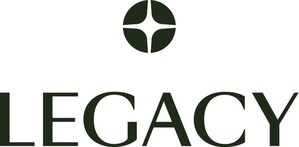WASHINGTON, Dec. 11, 2012 /PRNewswire/ -- In 1995, R.J. Reynolds targeted gays in a marketing campaign titled Project SCUM. Today, an edgy Delicious Lesbian Kisses (DLK) campaign draws attention to smoking among lesbians; The Network for LGBT Health Equity helps bridge the gap between Lesbian, Gay, Bisexual and Transgender (LGBT) organizations and tobacco control funding; and the CRUSH campaign uses 'cuties' to spread the message that being tobacco free is sexy.
To view the multimedia assets associated with this release, please click: http://www.multivu.com/mnr/53121-legacy-report-tobacco-control-in-lgbt-communities
(Logo: http://photos.prnewswire.com/prnh/20101101/DC86294LOGO)
Grassroots efforts across the country have worked hard to combat pervasive tobacco use within the LGBT community and a new report released by Legacy® focuses on those efforts. The report, titled Tobacco Control in LGBT Communities, explores the reasons behind continued disparities in tobacco use among LGBT people versus the general population, explains Legacy's role in addressing needs to support this priority population, and offers case studies of successful interventions.
"It's very likely that smoking is the single greatest health issue stealing years off the lives of LGBT people. Why do LGBT people smoke so much? We've been targeted by the tobacco industry, we're extremely vulnerable for social acceptance as we come out, and the pressures of stigma can nudge anyone towards unhealthy behaviors," said Scout, Ph.D., Director of the Network for LGBT Health Equity. "More LGBT civil rights leaders' voices have been silenced by tobacco disparities than any other single thing. For me, tobacco is one of the biggest social justice issues."
While nationally representative data is limited due to the diversity of the LGBT group, an article just released in the American Journal of Public Health analyzed nationally representative survey results and found that LGBT people smoke cigarettes at rates that are nearly 70 percent higher than the general population. It is estimated that LGBT adults are 1.5 to 2.5 times more likely to smoke than heterosexual adults. In the 1990s, the LGBT community gained more visibility which led the tobacco industry to push for heavier marketing campaigns toward gay and lesbian communities, especially among youth.
In 2000, Legacy hosted a forum in Atlanta to help guide a Legacy program designed to address the disparities in LGBT tobacco control. Some of the primary issues included:
- A lack of tobacco-related research or services specifically for LGBT populations
- A lack of LGBT community representation in mainstream tobacco control efforts
- Targeted marketing of LGBT communities by tobacco companies
- Reliance on tobacco company funding by LGBT organizations
- A lack of knowledge among community members in recognizing the public health threat that tobacco poses
- A lack of infrastructure and capacity among LGBT groups to address tobacco use
- A lack of an LGBT-organized network or structure to create coordinated and comprehensive tobacco control efforts
"For more than a decade, Legacy has worked hard with grassroots groups across the country to help combat the direct targeting that the industry has had on this community in an effort to reduce tobacco use and encourage cessation. Through funding and research, it has been our charge to help the LGBT community fight back and educate others on the dangers of tobacco use and nicotine addiction," said Cheryl Healton, President and CEO of Legacy.
Individual projects at the grassroots level have succeeded in shifting norms within the LGBT community. Some of these projects are detailed as case studies in the report.
- Leave No Funds Behind: Bridging the Gap Between LGBT Organizations and Tobacco Control Funding: The Network for LGBT Health Equity (The Network) worked with Legacy to create a project called "Leave No Funds Behind," to create a national database and toolkits and provide technical assistance and training in order to establish a bridge between LGBT organizations and tobacco control funders.
- CRUSH: The LGBT Lifestyle Project: CRUSH was an experiential marketing campaign by the Southern Nevada Health District Tobacco Control Program designed to address tobacco disparities among LGBT populations in Las Vegas, Nevada.
- Delicious Lesbian Kisses: A Social Marketing Campaign with Staying Power: The National Lesbian Health Organization (Mautner Project) designed the campaign to address tobacco disparities among women over the age of 40 by promoting the idea that nonsmoking women were sexier and more fun to kiss through posters and launch events in five cities across the United States.
- 30 Seconds: Helping Health Care Providers Reach LGBT Tobacco Users: The Gay and Lesbian Medical Association (GLMA) created an online Continuing Medical Education (CME) course for health care providers to teach culturally tailored strategies for conducting Brief Tobacco Interventions with LGBT patients.
Great strides have been made but much remains to be done to bring about social justice on tobacco use for this community. "People in the community want and need help, but it is difficult to provide them with knowledge and training when there is a lack of support for the LGBT population," said Scout. "With the help of others, people from within and even outside of the community can continue to improve tobacco education among a population that needs and deserves help."
For more information and to read the report visit: www.LegacyForHealth.org/LGBT.
Legacy helps people live longer, healthier lives by building a world where young people reject tobacco and anyone can quit. Legacy's proven-effective and nationally recognized public education programs include truth®, the national youth smoking prevention campaign that has been cited as contributing to significant declines in youth smoking; EX®, an innovative public health program designed to speak to smokers in their own language and change the way they approach quitting; and research initiatives exploring the causes, consequences and approaches to reducing tobacco use. Located in Washington, D.C., the foundation was created as a result of the November 1998 Master Settlement Agreement (MSA) reached between attorneys general from 46 states, five U.S. territories and the tobacco industry. To learn more about Legacy's life-saving programs, visit www.LegacyForHealth.org.
Follow us on Twitter @legacyforhealth and Facebook www.Facebook.com/Legacy.
SOURCE Legacy
WANT YOUR COMPANY'S NEWS FEATURED ON PRNEWSWIRE.COM?
Newsrooms &
Influencers
Digital Media
Outlets
Journalists
Opted In




Share this article